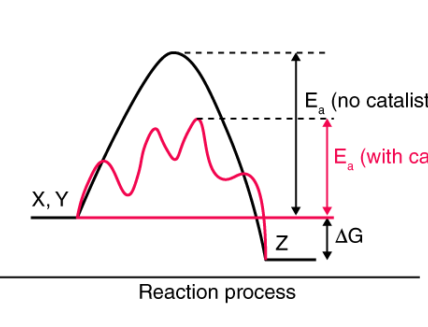In a world filled with stress and uncertainty, finding happiness can sometimes feel like an elusive goal. But what if I told you that there’s a science to happiness? In this article, we will explore the psychological strategies that can lead to a more fulfilling life.
Happiness is not just a fleeting emotion; it’s a state of being that can be cultivated and nurtured. Research has shown that certain practices and habits can have a significant impact on our overall well-being and satisfaction with life.
The Role of Positive Psychology in Happiness
Positive psychology is the study of what makes people “happy” as well as helping the individual live a life of purpose and fulfillment. It is focused on happy thoughts, feelings, and actions . Positive psychology is also a scientific approach to study innate strengths such as positive emotion, strengths-based character and ethical perceptions and programs that can help people develop and maintain vibrant lives and work. The following is some of the research-based strategies utilized in positive psychology.
One of the strategies used in our daily activities is that instead of focusing on weaknesses, aims towards building on people’s strengths. One can see personal self-value or accomplishment when utilizing her or his own strength. This method contributes to the encouragement of the individual developing a positive attitude towards achievement.
Another strategy used is savoring which helps a person fully experience the positive intermittent experiences in life. It has been found that savoring can increase a person’s overall long-term happiness. It is good to take time to experience the joys of life by choosing to have become a person who experiences and enjoys the present times.

The Power of Gratitude in Cultivating Happiness
One of the most effective psychological strategies to ensure happiness is gratitude. Gratitude helps us shift the focus from what we do not have to what we already possess. Through understanding and recognizing the positive occurrences around us, we develop our well-being and contentment.
Studies have continually revealed the profound impact of gratitude on our psychological and emotional statuses. By keeping a gratitude journal or repeatedly being grateful to others using a session, we can acquire brains that are wired to concentrate on the positives. This boosts our other’ happiness levels while strengthening our relationship and our world-views on the positive side of life . Integrate the given psychological strategy into specific concrete instances or moments.
Although there is no such thing as being grateful, we can integrate gratitude into various distinct moments of our life to increase happiness. A morning reflection on three things for which we are grateful can be included. This could be followed by saying thank you to that one person who made a positive change in our life.
The Science Behind Mindfulness and Its Impact on Happiness
Another psychological strategy that has gained a lot of attention in recent years is mindfulness. Mindfulness is the practice of paying attention to the present moment with openness, curiosity, and acceptance . In other words, it involves maintaining fully present self-awareness while also reducing stress and improving happiness. Research has demonstrated that mindfulness may significantly influence our happiness and mental health.
Mindfulness may help to reduce anxiety and depressive symptoms and enhance mood and resilience . It may make us much calmer and more at ease with our lives by teaching us how to be at that moment and avoid prejudgment. Mindfulness may be achieved through formal meditation, mindful breathing exercises, or merely bringing complete self-awareness to one’s everyday behaviors. We can achieve a high degree of serenity and pleasure by incorporating mindfulness into our routines.
Building Strong and Meaningful Relationships for a Happier Life
Human beings are social beings, and thus, their relationships significantly influence their happiness and well-being. These are powerful psychological tools for leading a meaningful life through strong and positive connections with others. Evidence-based studies have shown that having strong relationships with others makes one happier and healthier and improves one’s well-being and quality of life.
As a result, it is the connection of our relationships that have the largest contribution to our happiness and life satisfaction. In such a context, one of the vital ways to create connections is by building strong relationships. Good communication is a vital contributor to a meaningful relationship. When people listen actively to another and show empathy and compassion, they connect deeply. Listening to one another demonstrates concern and, more often than not, this creates happiness.
Additionally, to building communication, is building a connection and a sense of belonging . By actively participating actively in social environments, people create strong support systems.
The Importance of Self-Care and Its Connection to Happiness
Self-care is a crucial aspect of maintaining our overall well-being and happiness. It involves taking intentional steps to nurture our physical, mental, and emotional health. By prioritizing self-care, we can recharge our energy, reduce stress, and enhance our overall happiness.
Self-care looks different for everyone, as it involves activities and practices that bring us joy and rejuvenation. Whether it’s engaging in hobbies, practicing relaxation techniques, or simply taking time for ourselves, self-care allows us to prioritize our own well-being.
Research has shown that practicing self-care not only enhances our happiness but also improves our productivity and increases our resilience. By making self-care a priority in our lives, we can better manage stress, prevent burnout, and lead more fulfilling lives.
The Impact of Exercise and Physical Activity on Mental Well-being
Physical exercise is not only beneficial for our physical health but also has a profound impact on our mental well-being and happiness. Engaging in regular exercise releases endorphins, which are natural mood boosters that can reduce stress and improve our overall mood.
Research has consistently shown that exercise can alleviate symptoms of depression and anxiety, improve cognitive function, and enhance our overall well-being. Whether it’s engaging in cardiovascular activities, strength training, or practicing yoga, finding an exercise routine that suits our preferences and goals can have a significant impact on our happiness.
In addition to the physiological benefits, exercise also provides us with a sense of accomplishment and self-confidence. Setting goals and achieving them through physical activity can boost our self-esteem and enhance our overall happiness on wdbos.

The Role of Purpose and Meaning in Finding Happiness
Having a sense of purpose and meaning in life is a fundamental psychological strategy for finding happiness. When we have a clear sense of what matters most to us and align our actions with our values, we can experience a deeper sense of fulfillment and satisfaction.
Research has shown that having a sense of purpose can not only enhance our overall well-being but also improve our physical health and increase our longevity. By identifying our strengths, passions, and values, we can discover our unique purpose and make choices that align with our authentic selves.
Finding purpose and meaning in life doesn’t necessarily mean making grand gestures or achieving extraordinary accomplishments. It can be found in the everyday moments and actions that bring us joy and fulfillment. By aligning our lives with our values, setting meaningful goals, and engaging in activities that resonate with our passions, we can experience a greater sense of purpose and happiness.
Strategies for Managing Stress and Increasing Resilience
Stress is a natural component of life, but how we cope with and react to it has a major effect on our general well-being and satisfaction. Learning good methods of stress management and developing resilience are crucial psychological abilities for living a satisfying life.
One skillful method to manage stress involves the use of stress-reducing techniques such as deep breathing, meditation, or participating in activities that help you relax. These techniques trigger the body’s natural relaxation response, facilitating relaxation and serenity. Building resilience is another important tactic for managing stress and boosting happiness. Resilience is the ability to recover from hardship and think positively in the face of challenges.
Resilience allows one to deal with stress, embrace change, and maintain one’s general health. Some methods to develop resilience include a “growth mindset,” self-compassion, and a supportive social system. By seeing challenges as opportunistic occurrences, learning to show oneself understanding and consideration, and seeking diversified support, resilience can be enhanced and overall satisfaction can be increased.
Applying the Science of Happiness to Live a Fulfilling Life
The science of happiness provides us with practical strategies for cultivating a more fulfilling and meaningful life. By incorporating practices such as gratitude, mindfulness, building strong relationships, practicing self-care, engaging in physical activity, finding purpose, and managing stress effectively, we can unlock the secrets to long-lasting joy and happiness.
Remember, happiness is not an end goal; it’s a journey. It requires conscious effort and intentional choices. By understanding the science behind happiness and applying these psychological strategies in our daily lives, we can embark on a journey towards a more fulfilling and joyful existence.
So, start taking small steps today. Practice gratitude, be mindful of the present moment, nurture your relationships, prioritize self-care, engage in regular exercise, find meaning in your actions, and build resilience. By doing so, you can create a life filled with happiness, purpose, and fulfillment.
Also read: Tortilla Wrap Hack: TikTok’s Lunchtime Revolution











